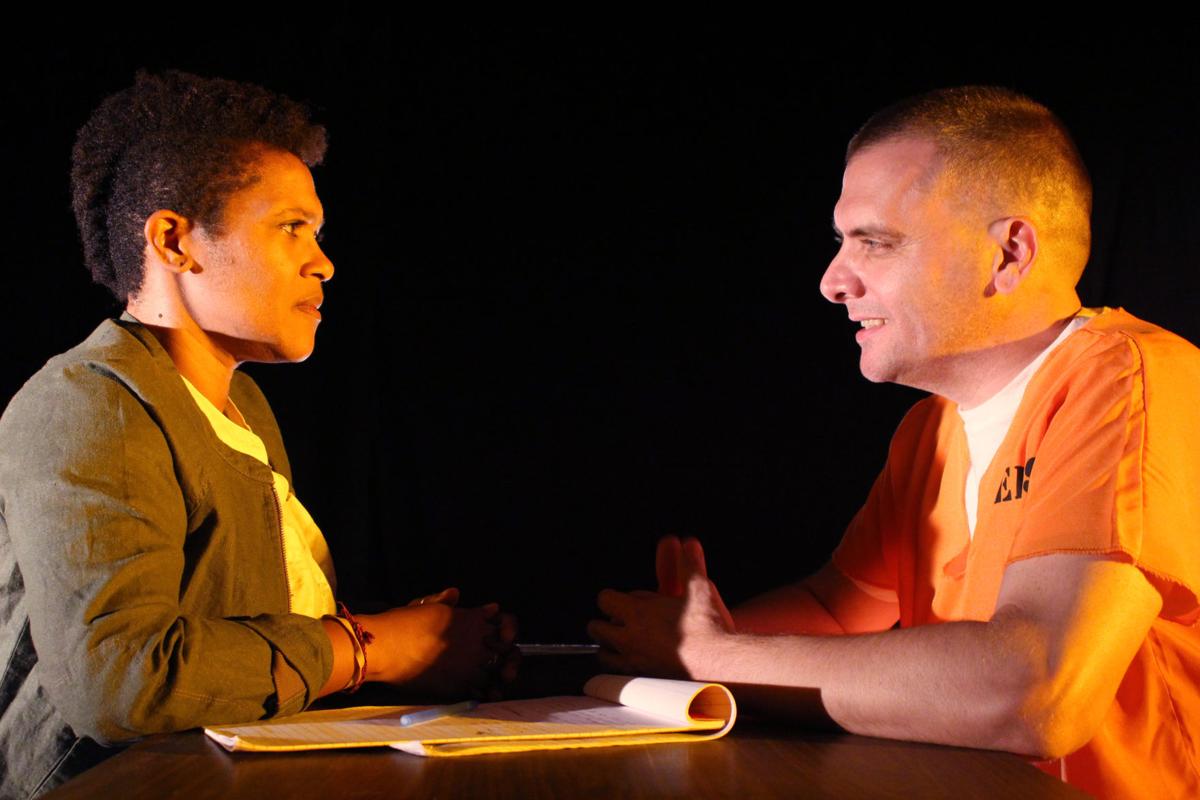The near future is a dark, disturbing place in Robert Schenkkan’s “Building the Wall,” now on Borderlands Theater’s stage.
You want to dismiss the playwright’s premise — that the racism in this country, the need to push immigrants out, to wall them off — can lead to devastating results.
But you can’t.
Too much has changed in this country. Our basic humanity seems to be slipping away. The divisiveness is loud and ugly. The need to blame crime, the economy, all ills on the “other” is pervasive.
Schenkkan takes all that and brings it to a horrifying but not-too-far-fetched conclusion.
Sean Williams Dupont is Rick, who is in prison awaiting sentencing for crimes we don’t discover until late in the 90-minute play. Rick was in charge of a private prison in Texas. When the president declares martial law after a terrorist attack in New York City, millions of immigrants are rounded up to be deported. Trouble is, many of the countries they come from won’t accept them — in protest of the policy — so the prisons become more and more crowded.
While Rick is awaiting sentencing, Gloria (T Loving), an historian, comes to talk to him, hoping to get the truth. Her goal, she says, is to understand what happened while he ran the prison.
But in this Marc Pinate-directed production, Gloria is more of a prosecutor, packed with judgement as she questions Rick. Understanding doesn’t seem to be the goal. Rather it seems she wants to put Rick on trial again.
Given that, it’s tough to see the motive for Rick spilling the whole story to her. Sure, he needs to talk, try to explain himself. But who is going to do that when the listener drips with accusation?
And really, it is America and its immigration policies that is on trial in this play; not Rick.
A less aggressive approach on Gloria’s part, a gentler response to Rick, would have underscored Schenkkan’s points much more effectively.
Pinate envisioned the jailhouse discussion as a sort of boxing match — even the elevated stage set in the center of the theater resembles a boxing ring. You can certainly see why he made that choice in the back-and-forth dialogue. But Pinate’s action of this verbal bout offers little in the way of any attempts to slip punches. The couple most often seem to blindly throw haymakers at each other. The irony here is that the ferocity of the duo’s attacks often obscures the effectiveness of the pin-point jabbing inherent in the script.
Still, this is an important, harrowing play. Schenkkan is brilliant with dialogue, and the story is chilling. It should be seen.





